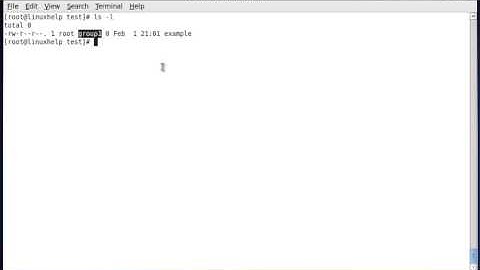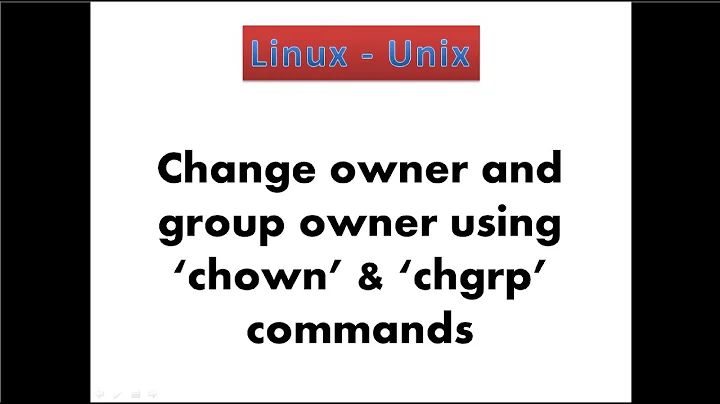How to fix "chown: invalid group:" if the user does not exist on the running system?
145
Use the numerical UID/GID instead of the user/group name.
You can find the UID/GID on the system the disk belongs to by using
id some_username
or
ls -ln some_file
where some_file is a file that belongs to user you are looking for
Related videos on Youtube
Author by
ssd
Updated on September 18, 2022Comments
-
 ssd almost 2 years
ssd almost 2 yearsFollowing code is supposed to return the upper case string of the source. It works but does not convert the string. Could not figure out what was wrong.
char *StrUpper (char *s) { int i = 0; char *t = &s [i]; while (*t) { if ((*t > 0x5a) && (*t < 0x7b)) t = (t - 32); t = &s [i++]; } return (s); } int main () { printf ("%s\n", StrUpper ("lower case string")); return (0); }-
davmac almost 10 years'it works but does not convert the string' - surely this means it doesn't work?
-
 Rahul Tripathi almost 10 yearsAlso to add that the reason why you say that it works is because you are getting an undefined behavior.
Rahul Tripathi almost 10 yearsAlso to add that the reason why you say that it works is because you are getting an undefined behavior. -
 Unn almost 10 yearsIt might be good to mention that you're looking at the 0th element twice:
Unn almost 10 yearsIt might be good to mention that you're looking at the 0th element twice:t = &s [i++]might want to be replaced witht = &s [++i] -
José Manuel Blasco over 2 yearsIn my case, I was using chown with $USER:(id -n $USER) that fills the group. But the group had whitespaces so I had to surround the group part. $USER:"(id -n $USER)" worked for me
-
-
 ssd almost 10 yearsI've already tried that (*t = *t - 32) thing; in that case however, codeblock crashes like: Problem signature: Problem Event Name: APPCRASH ... Exception Code: c0000005
ssd almost 10 yearsI've already tried that (*t = *t - 32) thing; in that case however, codeblock crashes like: Problem signature: Problem Event Name: APPCRASH ... Exception Code: c0000005 -
 ssd almost 10 yearsJust tried your code above, codeblocks crashes like: Problem Event Name: APPCRASH Exception Code: c0000005
ssd almost 10 yearsJust tried your code above, codeblocks crashes like: Problem Event Name: APPCRASH Exception Code: c0000005 -
Vlad from Moscow almost 10 years@merkez3110 The problem is not with the function I showed. The problem with how you call it. For example you may not use string literals as arguments of the function.
-
 ssd almost 10 yearsI've already tried the code below, no change: ` int main () { char *s = "lower case string"; printf ("%s\n", StrUpper (s)); return (0); }`
ssd almost 10 yearsI've already tried the code below, no change: ` int main () { char *s = "lower case string"; printf ("%s\n", StrUpper (s)); return (0); }` -
 Some programmer dude almost 10 years@merkez3110 That's because
Some programmer dude almost 10 years@merkez3110 That's becausesstill points to the constant string literal. Instead dochar s[] = "..."; -
Vlad from Moscow almost 10 years@@merkez3110 See my updated post where there is an example of using the function.
-
 ssd almost 10 yearsOK!
ssd almost 10 yearsOK!StrUpper ("blah blah");andchar *s = "blah blah"; StrUpper (s);does not work; butchar s [] = "blah blah"; StrUpper (s);works. Thanks for everyone. As @JoachimPileborg noted, I was trying to crunch a string literal which is a const by def. -
This isn't my real name almost 10 yearsOddly enough, string literals are not const by definition, they are non-modifiable by definition. String literals are exceptional: they don't become arrays of
const chartype, they become arrays ofchartype that you are nevertheless forbidden to modify.




